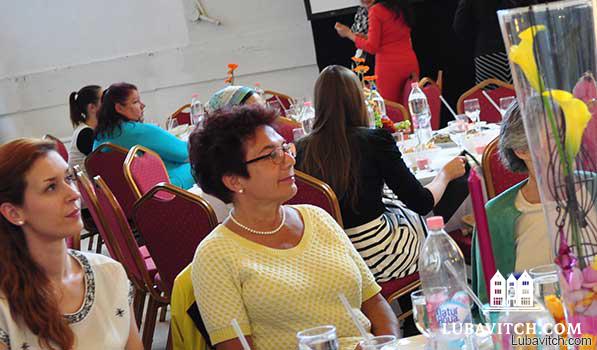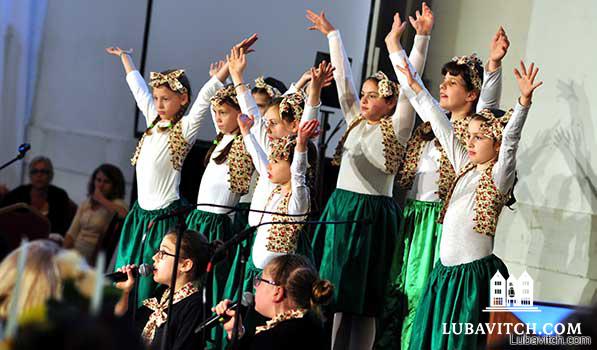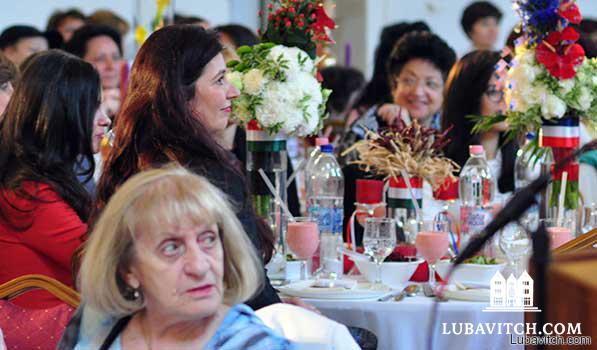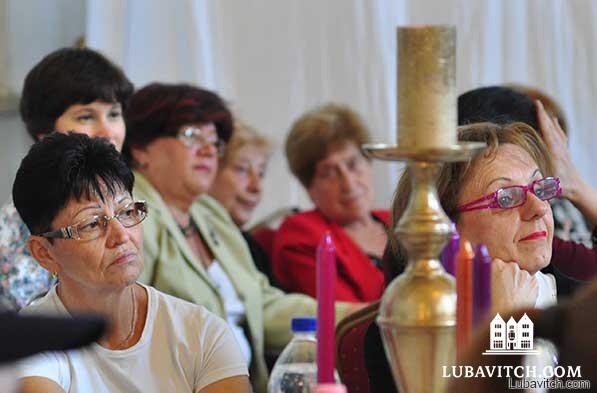When Kata Nádas, 31, a Hungarian Jew, first began attending Chabad programs at sixteen, her parents were concerned. Their associations with Judaism were all dark: more than a half a million Jews were murdered by the Nazis with the assistance of local Hungarians, and anti-Semitism was on the rise in the country.
Recently she joined the Hanna Klub, the city’s Jewish women’s circle which engages some 500 local Jewish women. The experience was evidence of a Jewish community that is slowly coming out of the shadows, as growing numbers of Jews are choosing to identify.
“Your religious identity was not discussed,” says Nádas, whose parents grew up in a socialist country. A program coordinator at the Central European University in Budapest, she says that “no religion was allowed to be practiced.”
In 1989, shortly before the Socialist Workers’ Party lost control, Batsheva Oberlander, who arrived then with her husband to serve as Chabad representative to Hungary, recalls that interest in Judaism surged among local Jews. But it was short-lived, “a curiosity” that soon waned as the country’s economy took centers stage.
These days Oberlander has noticed young Jews demonstrating a genuine interest in their traditional roots. “Life has become more developed for the citizens and the Jewish community is relatively fine,” she says, pointing to Nádas as an example of one individual among a growing segment of the Jewish community in Budapest searching for their heritage.

“When I first came to Chabad, it was a classmate who I confided in about my identity crisis,” Nadas shares. “Today, with the internet and Facebook, it is much easier for Jews to find Chabad and connect to their Jewish roots.”
The rising sense of anti-Semitism in the country compels Jews to explore what it is that sets them apart. “People have transferred to Jewish schools and want to learn why as Jews they are in the spotlight,” Oberlander says.
The growth of Chabad has brought a brisk Jewish community infrastructure that has made Jewish living possible supports the movement towards Jewish engagement: kosher food, a Jewish day school, Jewish study groups, Chabad on Campus, and several synagogues are now available to the city’s 100,000 Jews.
One of those programs is the Hanna Klub. Founded 13 years ago, the club seeks to offset the reticence about faith by creating a sense of community and identity among Budapest’s Jewish women through social events and activities.

“Your Jewishness is not really a topic you talk about, in public school or in the work place. You don’t know if your neighbors are Jewish,” she says. Participating at the club she’s met her high school friends, neighbors and acquaintances and learned that they are Jewish.
Anna Petrasovits, an economist, local politician and a frequent participant at the Hanna Klub, says she enjoys the programs, which vary from lectures that explore questions of faith and the Jewish holidays to more mundane but fun concerns like “perfumes and baking.”
Hanna Klub programs, publicized by email and social media, also reach people by word-of-mouth, and offer many participants their first encounter with the Jewish community.
“Once people attend Hanna Klub, they learn about the other events and keep in touch with the Jewish community,” the Chabad representative says. The club has developed programs for Jewish teens and young adults as well.

Empowering Jewish women with knowledge and pride in Judaism has led to perceptible change even for the older generation of Hungarians. “Today my parents and their friends are all open about being Jewish,” Nádas says. “Now they are more involved in Judaism because of me; I became their info person; whenever they or any of their friends have a question about religion, or the date of holidays, they contact me.”
The shift is especially meaningful to the Chabad representatives who’ve worked hard to lead the community forward. “We still have a lot more work to do to reach all of the Jews in the country,” says Oberlander. “So we reach out one by one, and to develop programs that answer their quest in a way that empowers them to grow in their identity.”

Be the first to write a comment.